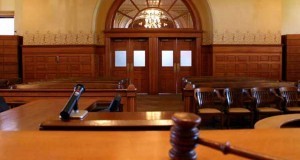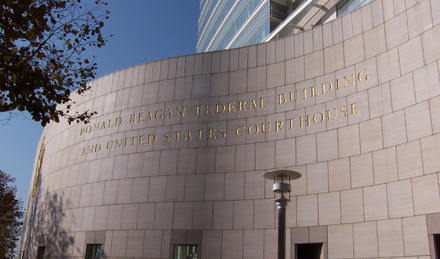SANTA ANA, CALIF.
 An Irvine engineer who stole trade secrets belonging to two former employers, both of which develop and manufacture medical devices used to treat cardiac and vascular ailments, was sentenced late this afternoon to 27 months in federal prison.
An Irvine engineer who stole trade secrets belonging to two former employers, both of which develop and manufacture medical devices used to treat cardiac and vascular ailments, was sentenced late this afternoon to 27 months in federal prison.
U.S. District Judge Andrew J. Guilford on Monday sentenced Wenfeng Lu, 46
Lu was sentenced after pleading guilty last May to six counts of unauthorized possession and attempted possession of trade secrets.
Lu admitted that he stole confidential and proprietary trade secrets from two different medical device companies with research facilities in Irvine, where Lu worked from January 2009 until he was arrested in this case in 2012.
Lu first worked at ev3 (which later become part of Covidien, and then Medtronic), and later at Edwards Lifesciences Corporation.
Notwithstanding signing employment agreements in which he acknowledged that proprietary technology developed at the companies was the sole property of the companies, Lu copied numerous documents belonging to both of his employers that contained technical information and trade secrets, took them home, and placed them on his personal laptop computer.
 While he was working for the companies, Lu traveled to the People’s Republic of China (PRC) multiple times – sometimes soon after stealing the trade secrets from his employers. Lu had obtained financing and was preparing to open a company in the PRC that would manufacture devices used to treat vascular problems and would use the technology he had stolen from his American employers, according to court documents.
While he was working for the companies, Lu traveled to the People’s Republic of China (PRC) multiple times – sometimes soon after stealing the trade secrets from his employers. Lu had obtained financing and was preparing to open a company in the PRC that would manufacture devices used to treat vascular problems and would use the technology he had stolen from his American employers, according to court documents.
“In furtherance of his business, defendant [Lu] applied to the PRC government for funding designed to attract technological talent from places such as the United States, and was selected to receive approximately $2 million RMB (about $328,000 USD) and free rent for a period of three years in a laboratory in a technology park located in Nanjing Province in the PRC,” prosecutors wrote in a sentencing memorandum filed with the court.
Adding, “The money and laboratory space was part of a program sponsored by the PRC government to encourage scientists of Chinese descent to return to the PRC with intellectual property to develop biomedical technology in the PRC.”
Lu was arrested as he prepared to board a plane to the PRC in November 2012, which prevented him from implementing his business plan and causing significant harm to the victim companies in the United States.
The sentencing memo notes that Lu was not content with “a substantial salary, a comfortable life in Irvine, California, and the opportunity to develop meaningful products that save people’s lives,” so he took his employers’ protected information.
In addition, he took the information to the PRC, putting those trade secrets “at great risk of being stolen by nefarious actors in the PRC.”
This case was investigated by the FBI.

